One of Hollywood's first and most monumental sci-fi franchises, Planet of the Apes, began in 1968, with several successful sequels to follow in the years ahead. After it became somewhat stagnant with critics and at the box office, however, efforts to continue the once-lucrative series stalled for a while, until the release of Tim Burton's remake in 2001 and, later, the franchise's complete revisualization through a reboot trilogy, beginning in 2011.
We've put together a list of all the Planet of the Apes films. Each entry includes details regarding the film's plot (warning: mild spoilers), information about its box office/critical reception, and a list of links to places where you can watch it online. So, whether you're in the mood to watch just one or to binge the entire franchise, this list is perfect for you.
9 Planet of the Apes (1968)
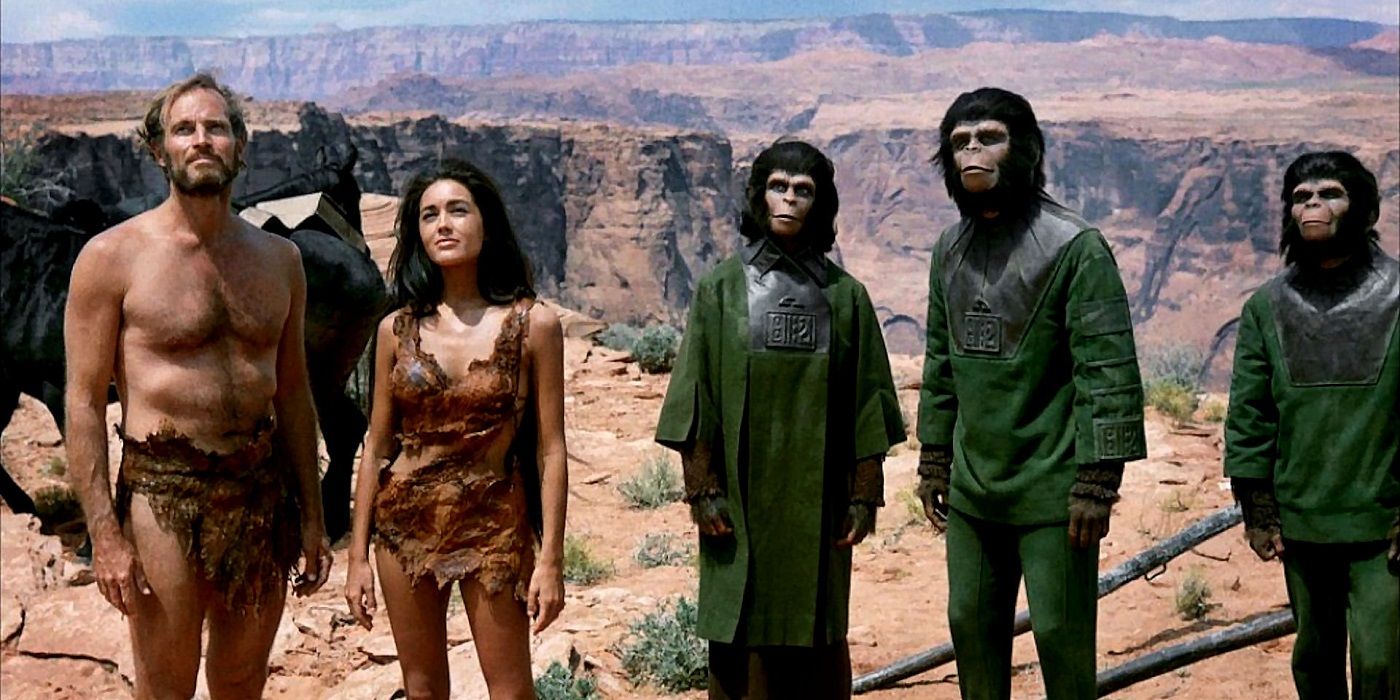
The 1968 sci-fi classic Planet of the Apes follows Taylor, an astronaut who has crash-landed on a primitive planet populated by humanoid chimpanzees. Starring Oscar winner Charlton Heston, the film became a bona fide classic and introduced several genre tropes, becoming so culturally significant that, in 2001, it was actually preserved by the Library of Congress.
The film that started it was also a major critical success, praised for its characters, atmosphere, commentary, and ending; it made $33 million on a budget of around $6 million, a big enough box office taking to ensure a sequel.
Available on: Amazon, DirecTV, Google Play, iTunes, Microsoft Store, Redbox, Vudu, YouTube
8 Beneath the Planet of the Apes (1970)
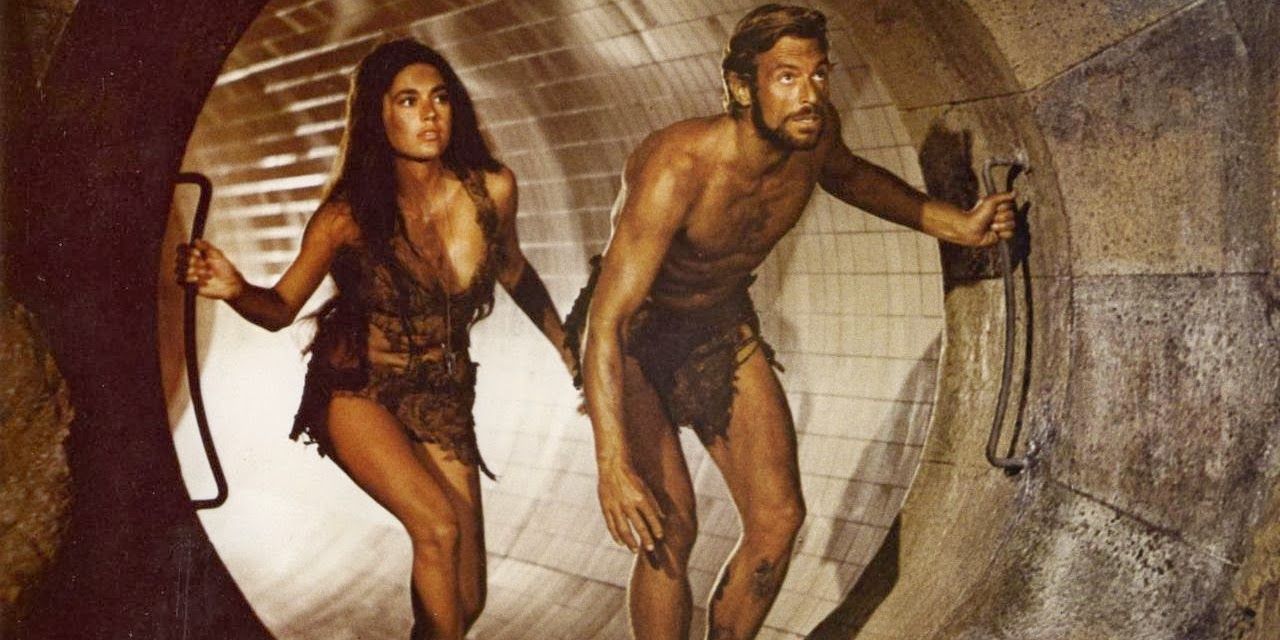
Released in 1970, Beneath the Planet of the Apes continues the adventures of Taylor as he meets Brent, a fellow astronaut who has been sent to recover him, who has likewise landed more than two millennia after the time of departure. Taylor, Brent, and Nova (a primitive, mute human formerly living in Ape City), must now navigate an underground city-like maze of telepathic humans who have been left mutated as a result of nuclear warfare.
While the installment was criticized as less humorous and more juvenile than its predecessor, the acting and sets were still praised. Plus, the film was still a moneymaker, as it earned $19 million on a budget of around $5 million.
Available on: Amazon, DirecTV, Google Play, iTunes, Microsoft Store, Redbox, Vudu, YouTube
7 Escape From the Planet of the Apes (1971)
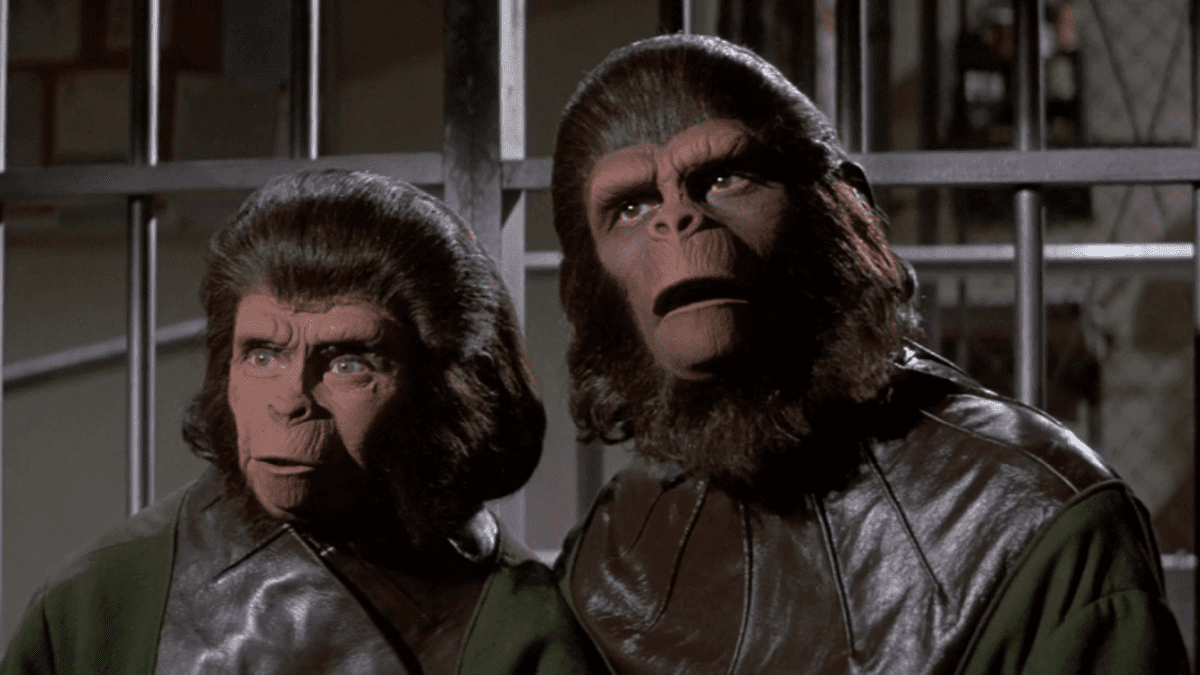
Fast-tracked through its production stages, Escape from the Planet of the Apes came out just one year after its predecessor. It follows the ape partners Cornelius and Zira; prior to Earth's destruction in the previous film, they escaped in the remains of Taylor's spaceship and time-traveled back to 1973, where they're captured and interrogated as to the origin pf their surprising levels of intelligence.
The film was a critical and commercial success—it was praised by review outlets for its characters, atmosphere, storyline, and social themes, and it made more than $12 million on a budget of just $2 million.
Available on: Amazon, DirecTV, Google Play, iTunes, Microsoft Store, Vudu, YouTube
6 Conquest of the Planet of the Apes (1972)
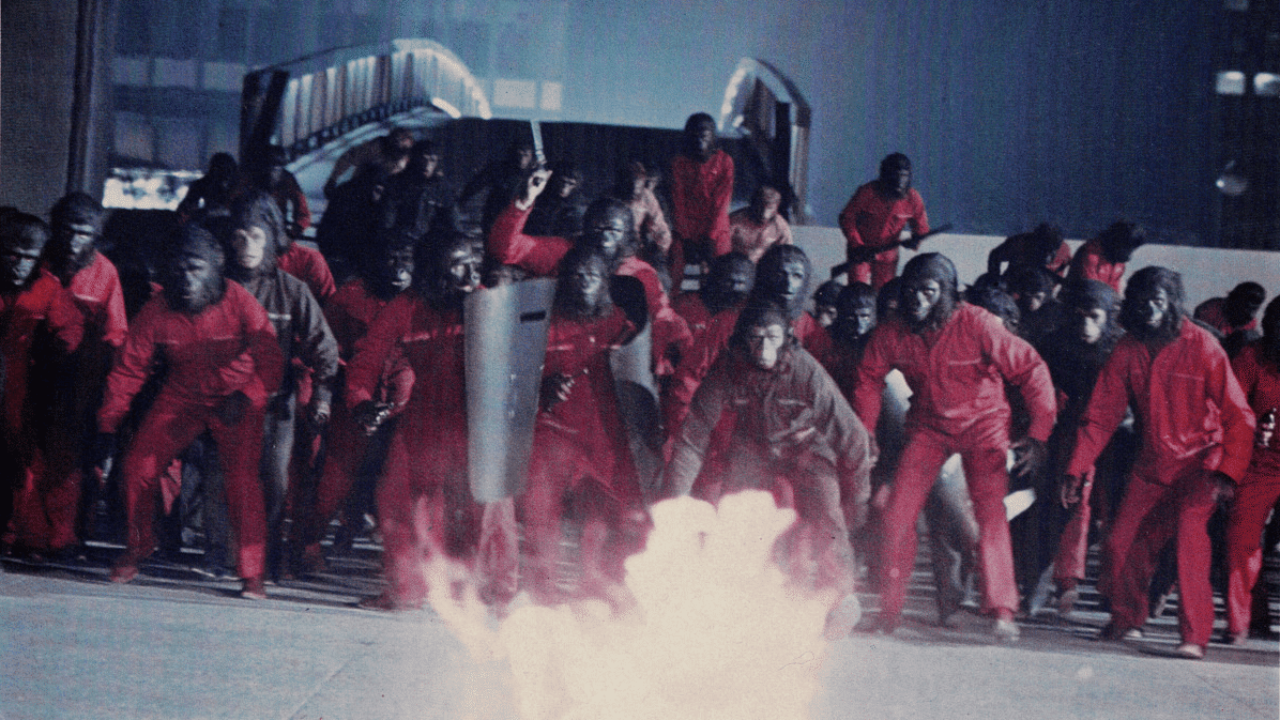
Released in 1972, Conquest of the Planet of the Apes takes place in 1991 and follows a then-future in which humans have taken apes as slaves. Weary of the discipline and misuse; the simians are plotting a rebellion of epic proportions.
The film received mixed reviews from critics, who praised the directing and performances but criticized the action and tone. While it didn't have as big of a box office pull as the franchise's previous installments, it was still profitable, making nearly $10 million on a budget of about $2 million.
Available on: Amazon, DirecTV, Google Play, iTunes, Microsoft Store, Vudu, YouTube
5 Battle for the Planet of the Apes (1973)
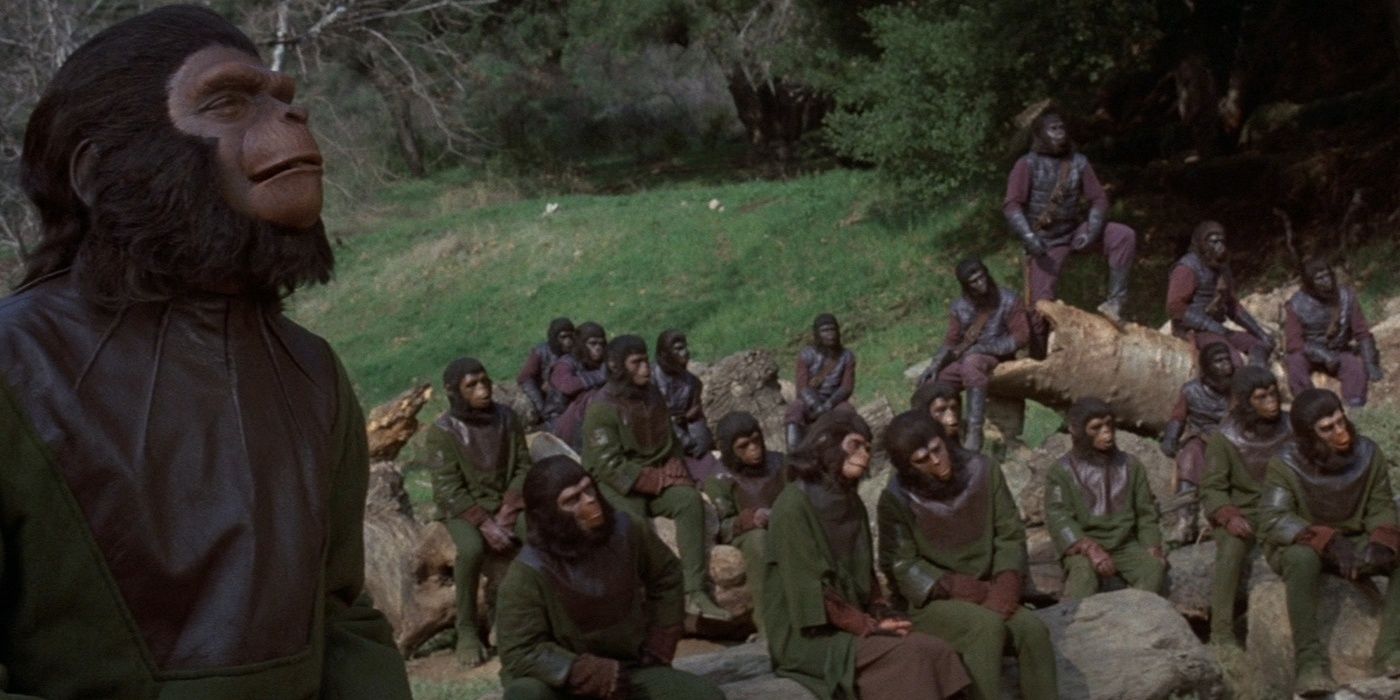
The last installment in the original five-film saga, Battle for the Planet of the Apes takes place in the early 21st century, years after a nuclear war has destroyed civilization, as an ape leader rises to reestablish society —although social disputes and constant warfare keep life from returning to almost-normal.
The film's staunchest critics saw it as a boring cash grab, although there was some praise geared toward the directorial efforts of Oscar nominee J. Lee Thompson. While it did have a substantial box office taking, making just under $9 million on a budget of $1.7 million, it didn't generate enough revenue to guarantee a follow-up.
Available on: Amazon, DirecTV, Google Play, iTunes, Microsoft Store, Vudu, YouTube
4 Planet of the Apes (2001)
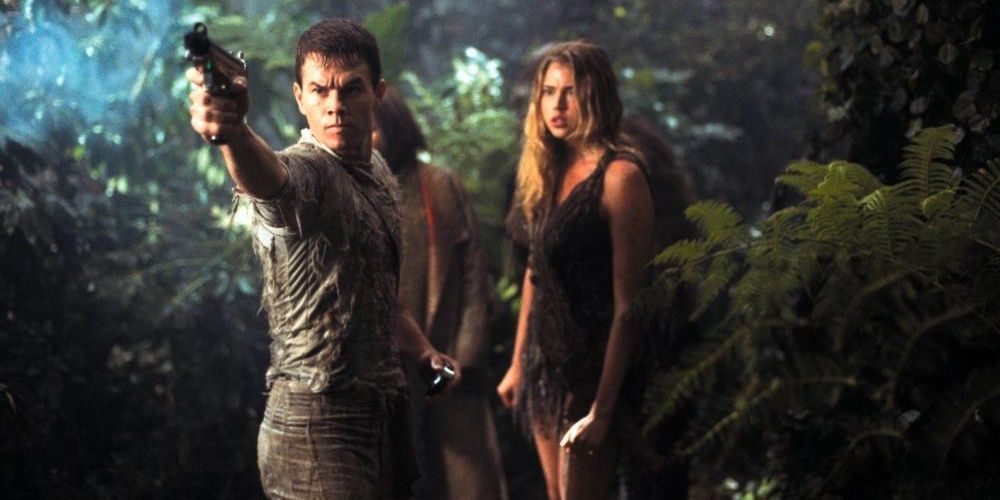
Attempts to continue the Planet of the Apes series went on for nearly thirty years, with a planned remake lingering in development hell; finally, Tim Burton was recruited to helm the project, with he billed as a "re-imagining" of the classic franchise. It begins in 2029, as astronaut Leo Davidson and his chimpanzee assistant, Pericles, are trapped in a horrible storm, awaking on the planet Ashlar in the year 5021; English-speaking apes rule the Earth and have taken multiple human slaves.
Produced on a monolithic $100 million budget and making an equally large box office taking of more than $360 million, the film still received mixed reviews, with many critics comparing it negatively to the original. Plus, it didn't generate nearly enough attention for 20th Century Fox to greenlight a sequel.
Available on: Amazon, DirecTV, Google Play, iTunes, Microsoft Store, Redbox, Vudu, YouTube
3 Rise of the Planet of the Apes (2011)
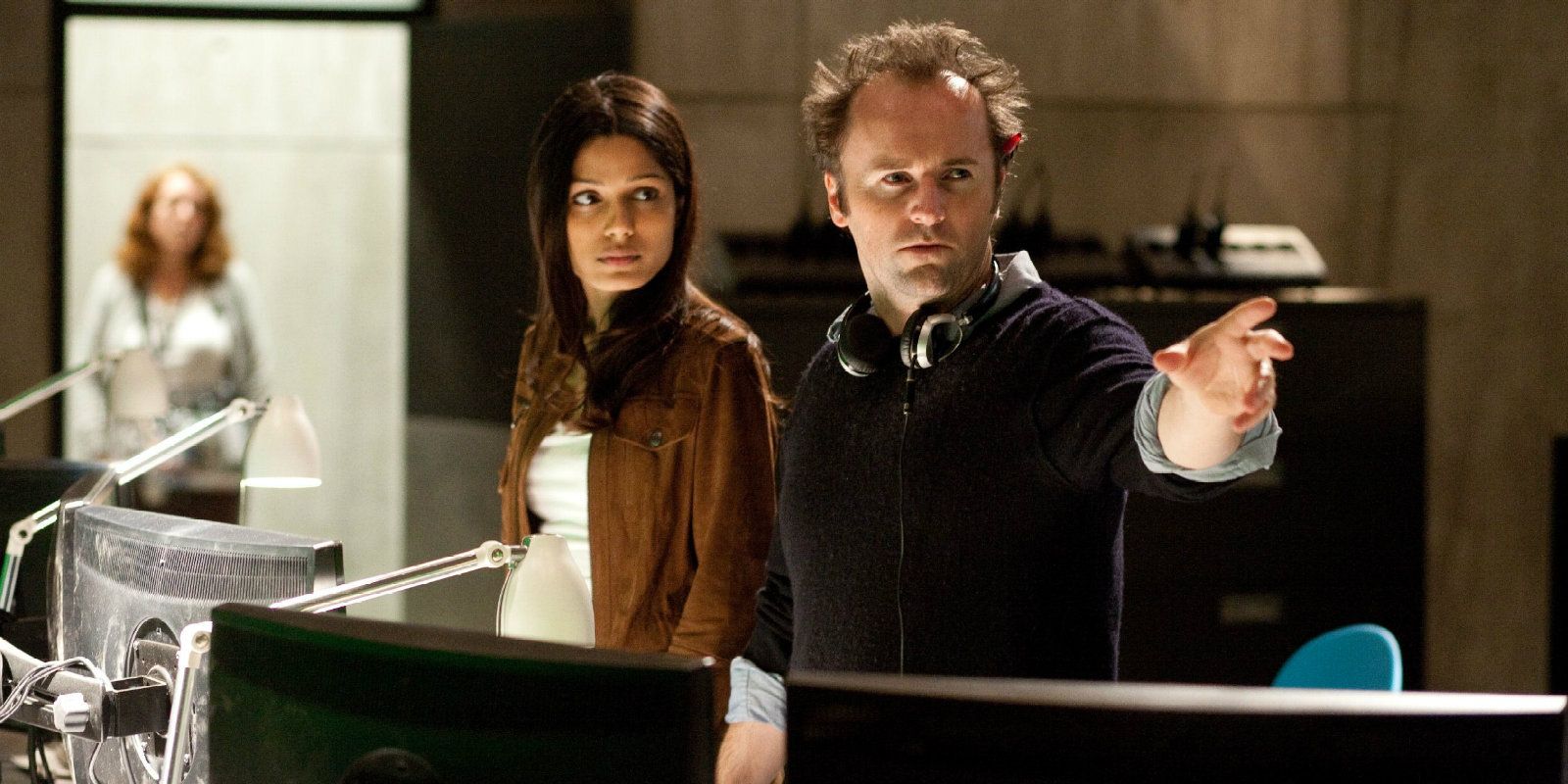
The long-rumored franchise reboot finally emerged in 2011—Rupert Wyatt's Rise of the Planet of the Apes. In this installment, partially based on the plot of Conquest, a drug is introduced to cure Alzheimer's that has the bizarre side effect of giving an ape it was tested on named Bright Eyes, and her spawn, Caesar, super-intelligence. When he comes of age, Caesar begins to question society, eventually staging a rebellion by exposing thousands of enslaved simians to canisters of the drug.
A major critical success, garnering multiple Oscar nominations, the film was praised for its characters, performances, directing, atmosphere, scenery, and special effects, and it became one of 2011's biggest summer blockbusters, making over $480 million on a $93 million budget.
Available on: Amazon, DirecTV, Google Play, iTunes, Microsoft Store, Redbox, Vudu, YouTube
2 Dawn of the Planet of the Apes (2014)
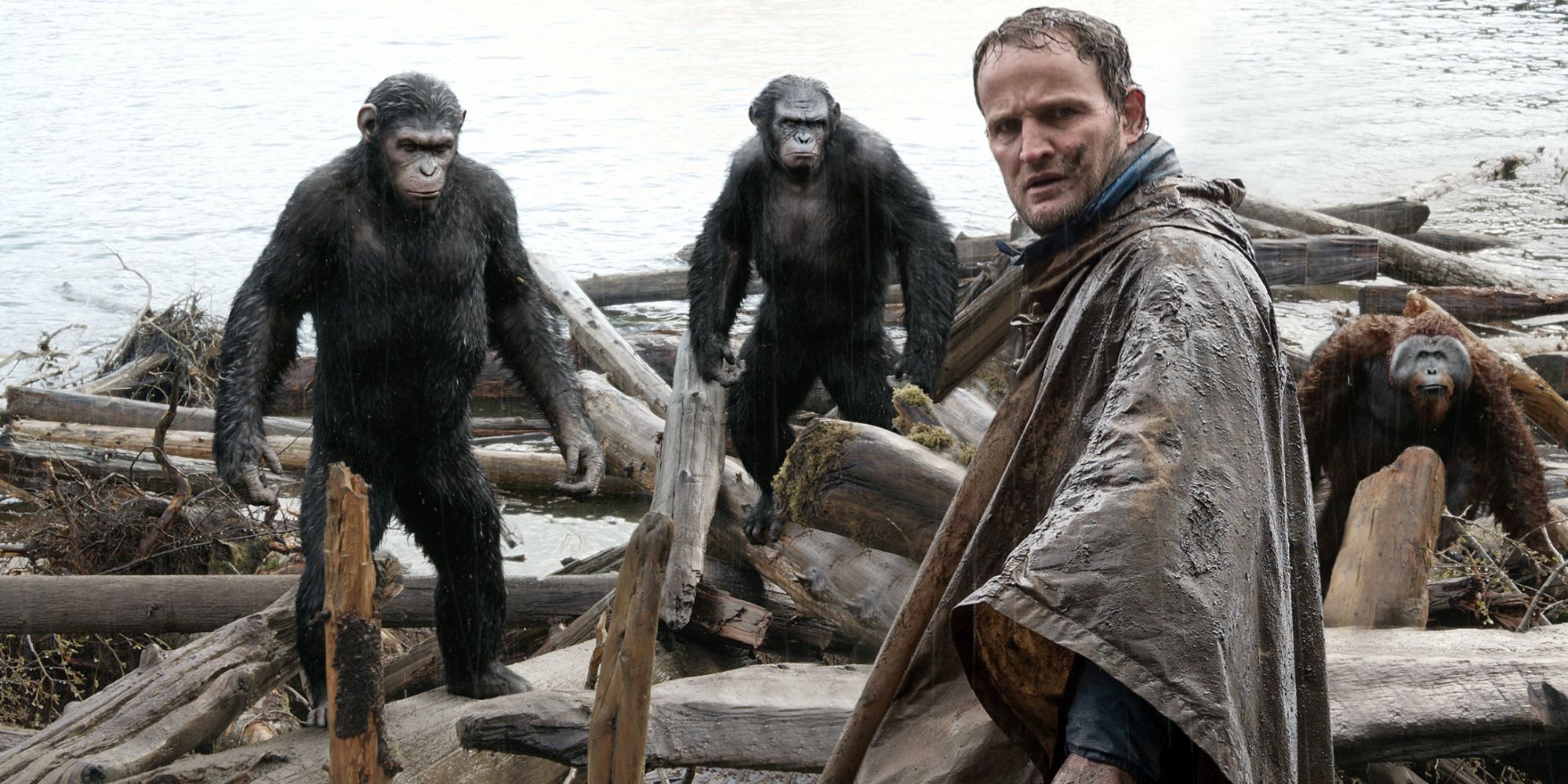
Ten years after the events of the previous film, Dawn of the Planet of the Apes follows Caesar as he struggles to keep his ape colony under control; meanwhile, an outbreak of Simian flu has killed billions, destroying society.
It became one of the most well-received films of the entire franchise, praised for its performances, direction, sci-fi elements, and tone. It also earned an Oscar nomination for Best Visual Effects. It also established the franchise as a box office titan, as nostalgia combined with positive critical reception equaled it a gross of more than $700 million.
Available on: Amazon, DirecTV, Google Play, iTunes, Microsoft Store, Redbox, Vudu, YouTube
1 War for the Planet of the Apes (2017)
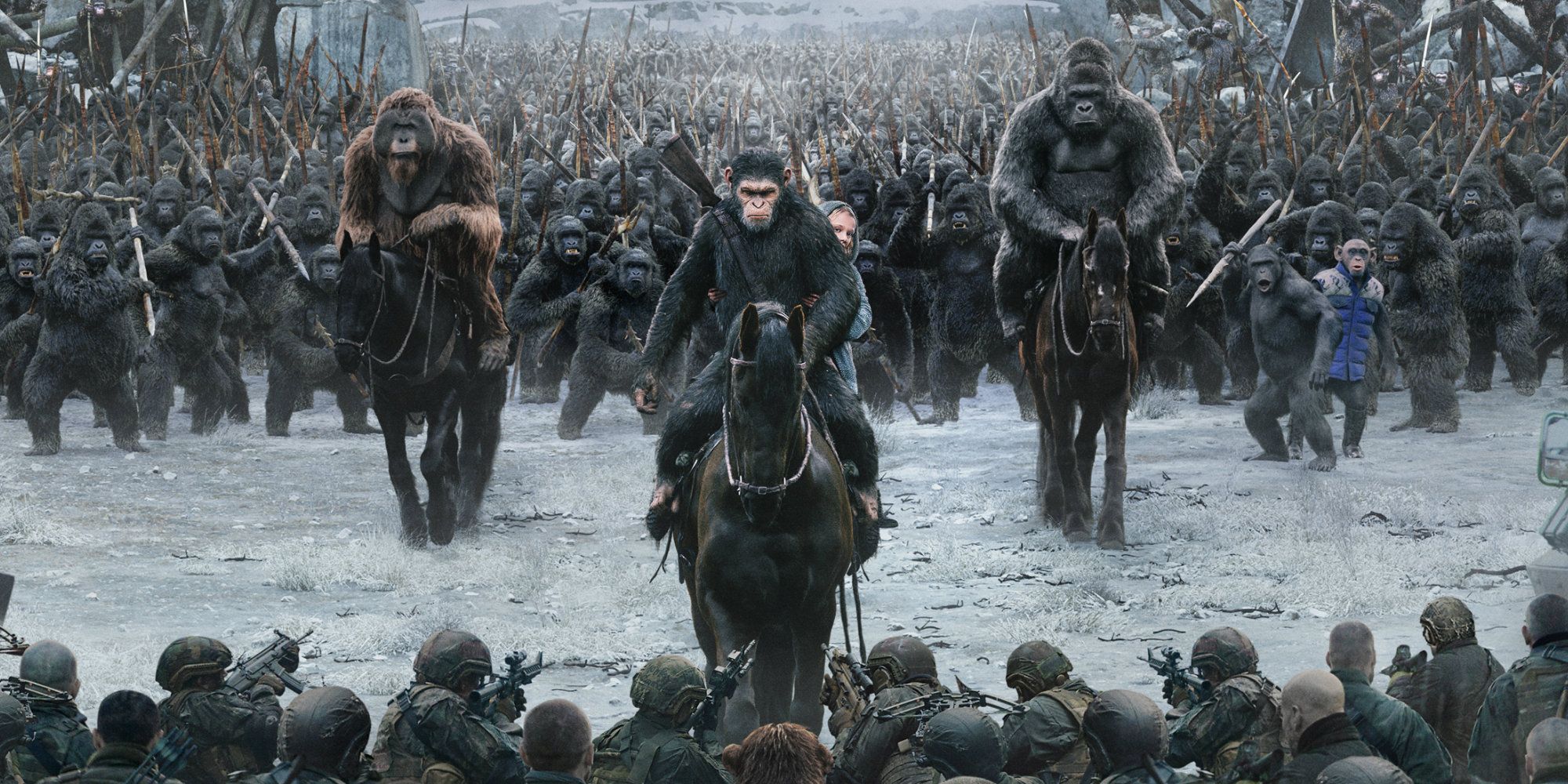
The reboot series' third entry, 2017's War for the Planet of the Apes, follows the apes and humans as they begin what is set to become the definitive struggle for Earth.
The film made $490 million on a budget of just $150 million, so while it didn't match up to the trilogy's middle chapter, it was at least successful enough to justify its own existence; plus, critics loved it, with many recognizing it as one of the best films of the entire franchise.
Available on: Amazon, DirecTV, Google Play, iTunes, Microsoft Store, Redbox, Vudu, YouTube
from ScreenRant - Feed https://ift.tt/2HeuvhL

0 comments:
Post a Comment